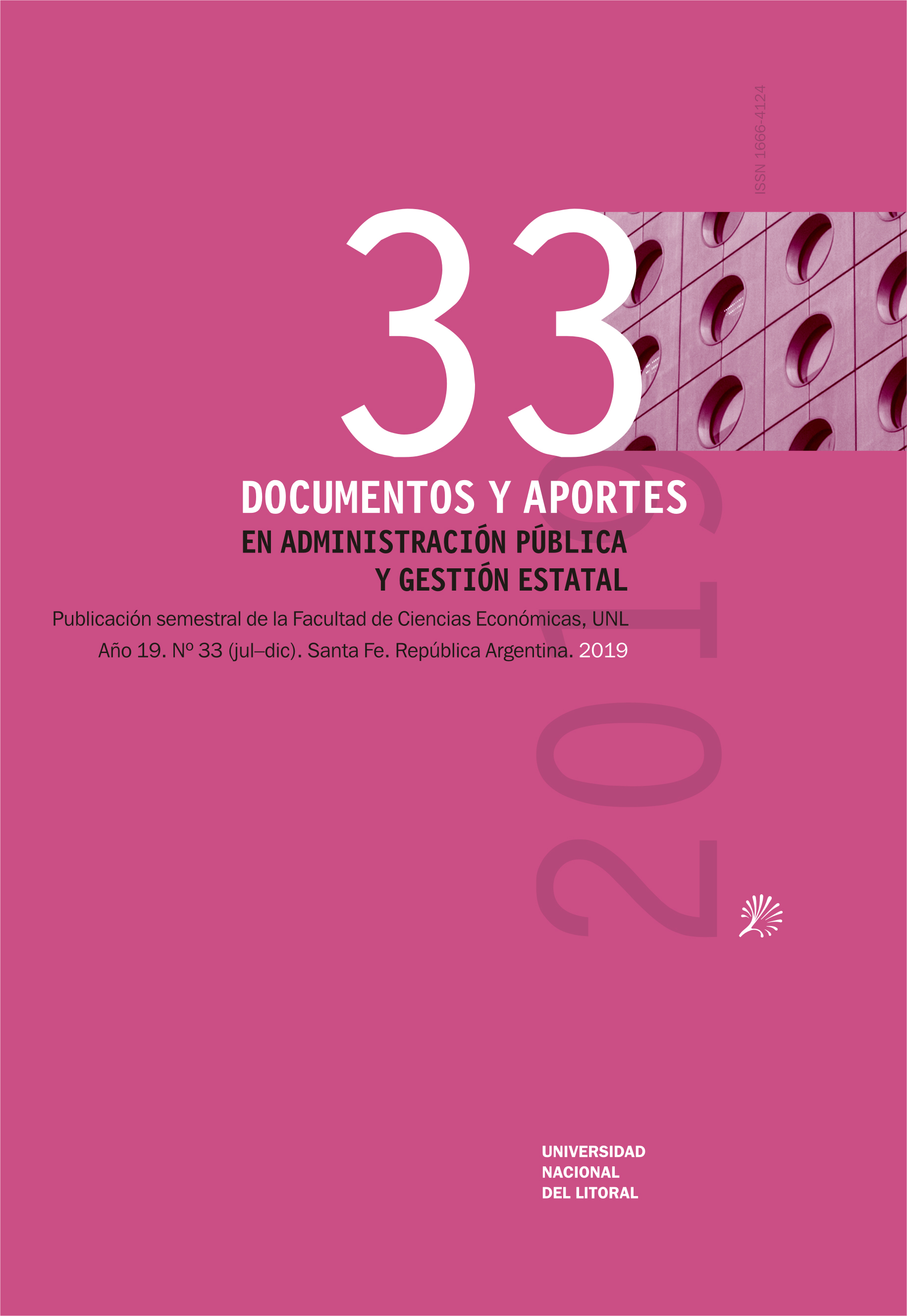Coordinación Intergubernamental en Políticas Ambientales. La Ley de Bosques Nativos en las Regiones Forestales: Parque Chaqueño y Bosque Andino-Patagónico (2008-2012)
DOI:
https://doi.org/10.14409/daapge.v19i33.9133Keywords:
Intergovernmental coordination, horizontal coordination, environmental policies, territorial incentives, institutional legitimacyAbstract
Intergovernmental coordination is a key factor to achieve a homogeneous implementation in national policies. However, the bibliography of coordination argues that the horizontal coordination (among jurisdictions of the same level of government) does not occur. On the contrary, this paper asks: Which factors produces that the subnational jurisdictions decide to act together to enforce a national environmental policy? Based on comparative analysis of the formulation process of the adequation laws to the National Forest Law in Argentina, I argue that the provinces act together when there are a regularized and legitim institutional frame available and a structures of incentives that produce that the locals politicians decide formulate and enforce an environmental policy in theirs jurisdictions.







